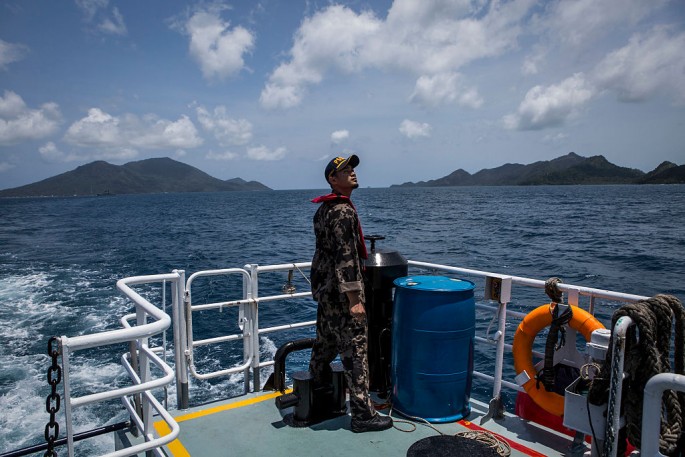Based on new satellite images, the think tank Asia Maritime Transparency Initiative (AMTI) of the Center for Strategic and International Studies said China appears to have installed weapons on seven artificial islands in the South China Sea.
The weapons possibly include anti-aircraft and anti-missile systems, according to an exclusive Reuters report. AMTI is monitoring the construction on Fiery Cross, Mischief and Subi reefs in the Spratly Islands when it noticed the hexagonal structures.
The images taken in November indicate the structures evolved from point-defense fortifications built at the smaller facilities of China on Gaven, Johnson, Hughes and Cuarteron reefs. AMTI added that the model went through another evolution at the bigger bases on Fiery Cross, Subi and Mischief reefs.
China, which insists it owns the disputed islands even if a U.N. Tribunal had ruled in favor of the Philippines, had previously denied plans to militarize the artificial islands in the area which is a strategic trade route. Besides, the Philippines, other Asian countries are also claiming ownership of the reefs and shoals.
AMTI said the satellite images of Gaven and Hughes reefs indicate anti-aircraft weapons and close-in weapons systems used as protection against cruise missile strikes. At Fiery Cross Reef, the towers appear to have targeting radar. China placed covers on the towers at Fiery Cross, however, based on the size of the platforms and the covers, it could hide defense systems similar to those in smaller reefs.
After months of studying the images and the structures’ purposes, the AMTI said it is now confident the reefs hide anti-aircraft and CIWS emplacements, Greg Poling, AMTI director said. The weapons indicate how serious China is in defending those disputed islands in the event of an armed contingency in the region where about $5 trillion worth of ship-borne trade passes annually.
On Wednesday, the U.S. warned it would be ready to confront China if Beijing continues on overreaching maritime claims in South China Sea, Admiral Harry Harris, head of the U.S. Pacific Command, said in a speech in Sydney. “We will not allow a shared domain to be closed down unilaterally no matter how many bases are built on artificial features in the South China Sea … We will cooperate when we can but we will be ready to confront when we must,” Reuters quoted Harris.



























